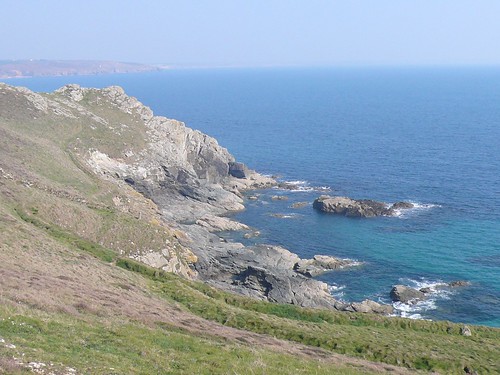Homage to Sandor Vegh

Thirty or so young musicians are curled up on velvet love-seats and scabby leather armchairs. Some clutch at tea and scones with gobs of cornish cream, and others at an early-bird half of ‘scrumpy’, the local cider. The remains of the log fire from last night's quartet-reading session relax in the oversized grate. Out of the lead paneled triple window, beyond trestle tables covered with remains of pasties and salad, beyond the abandoned croquet game on the tufty grass rolls the sea, its rhythmic crash against the cliffs constantly reinforcing what the maestro is saying.
We are in the Great Room at Porth-en-Alls at the International Musician’s Seminar, and in front of us is Sandor Vegh, the larger than life Hungarian musician. He has lain down his violin. With one hand and he is making as if to pull something very long out of his mouth and with the other he is making scissor movements, as if he is cutting the long thing that is coming out of his mouth. From his gut we hear a semi disgusted sound ‘Naaaaaaaa’ punctuated, each time he makes the scissor movement, by the word ‘Cutted!’ . Suddenly he stops, swings round on his chair (his belly and several chins seemingly a split second behind the rest of him) and cries:
‘Why you make macaroni sound?Naaaaaaaa… Cutted! Naaaaaaaaa…. Cutted!’
The student lets her violin hang from its scroll hooked in her sweating fingers and looks at Vegh. For those of us who have been here fifteen years on the trot, of course, the little piece of theatre is a welcome reminder of the curved nature of things, whether they be notes, waves, phrases, pasties, forearms, chins or purfling. However, for those for whom this is the first encounter with the great man who played with Casals and was friends with Bartok, there is a little more explaining to do.
Mr Vegh juts a fat first finger at the window and says: ‘Look ze waves! Avery sing in nature is caaaaarved!’
On that day, and on many days before it and still to come, from that grand oak chair in the Great Room looking out to sea, Mr Vegh taught me possibly the greatest lesson I ever learned. That nothing - no note, no phrase, no symphony, no movement, no preparation, no vibration - is made from straight lines. Meanwhile I have often wondered if, in his lifetime, not that it is very important, he gleaned any more information about pasta shapes. I still wonder, when he said macaroni (the curviest type of pasta available) did the Maestro in fact mean spaghetti, which is long and straight? Or, even better, flat sheets of hard edged lasagne that could well describe some sounds I have heard? Or perhaps Mr Vegh was simply incapable of contemplating anything straight in the universe. I shall never know.
(Sandor Vegh 1912-1997)






1 Comments:
:-) Great post, Ruth!
Post a Comment
<< Home